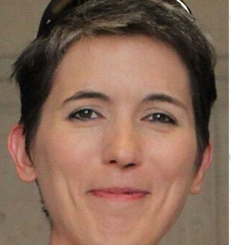Alexander Reisach (MAP5)
The Case for Time in Causal DAGs
Directed acyclic graphs (DAGs) are the central model class in the field of causal graphical models. They offer many benefits such as automating the selection of appropriate control variables and identification of causal predictors. Perhaps surprisingly, the variables in causal DAGs have as of yet not been equipped with a formal notion of time. We make the case for incorporating time explicitly into the definition of variables in causal DAGs. Causality requires that causes precede effects in time, meaning that the causal relationships between variables in one time order may not be the same in another. Therefore, any causal model requires temporal qualification; this applies even if the model does not describe a time series of repeated measurements. We formalize a notion of time for causal variables and argue that it resolves existing ambiguity in causal DAGs and is essential to assessing the validity of the acyclicity assumption. If variables are separated in time, their causal relationship is necessarily acyclic. Otherwise, acyclicity depends on the absence of any causal cycles permitted by the time order. We introduce a formal distinction between these two conditions and lay out their respective implications. We outline connections of our contribution with different strands of the broader causality literature and discuss the ramifications of considering time for the interpretation and applicability of DAGs as causal models.



